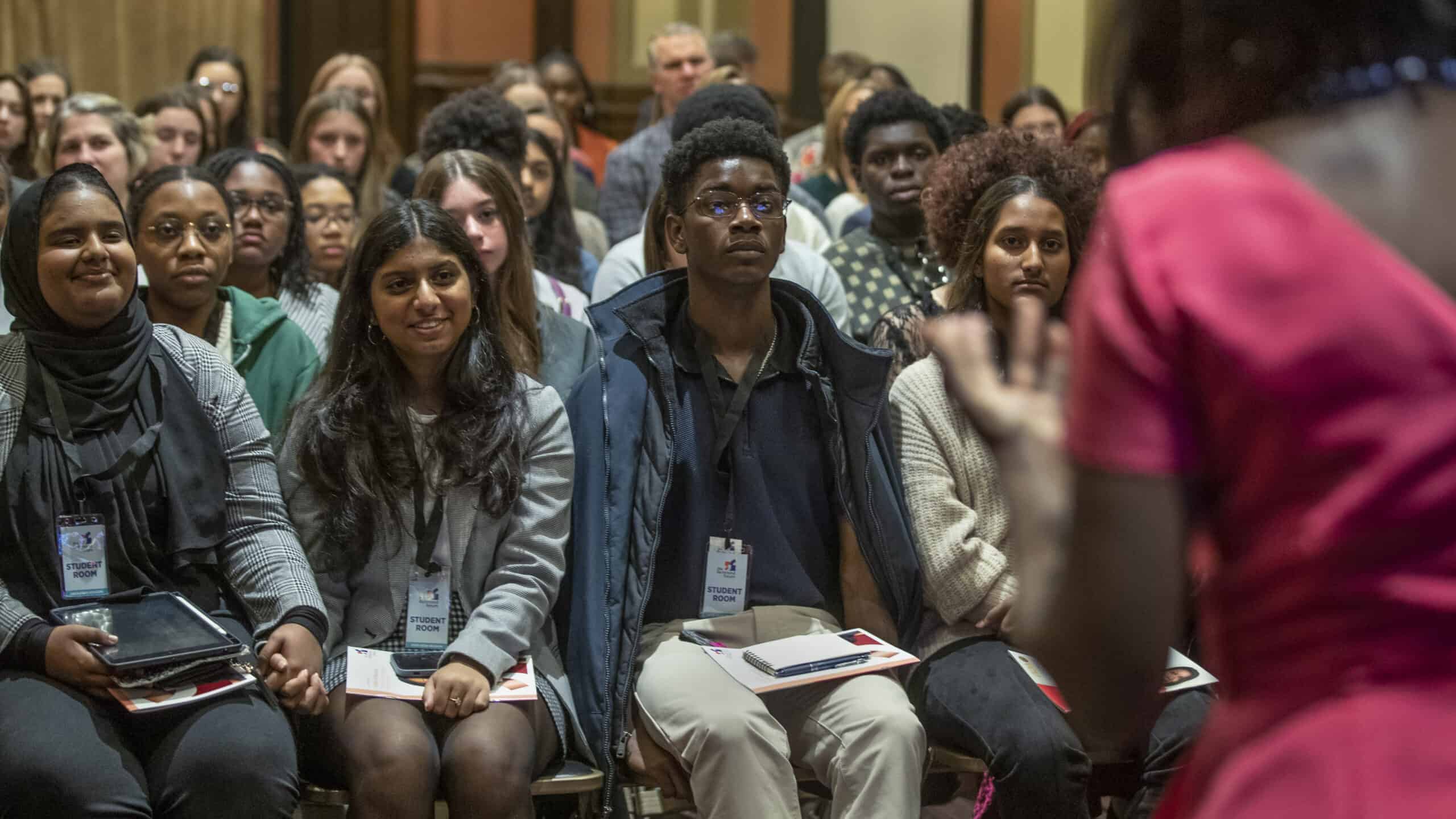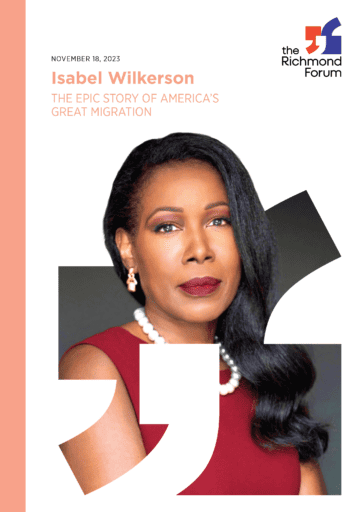Past Event On November 18, 2023
Isabel Wilkerson
The Epic Story of America’s Great Migration
The author of “The Warmth of Other Suns” and “Caste” captivated the Forum audience with a discussion on how the mass movement of African Americans from the rural South to the urban North throughout the 20th century shaped America.

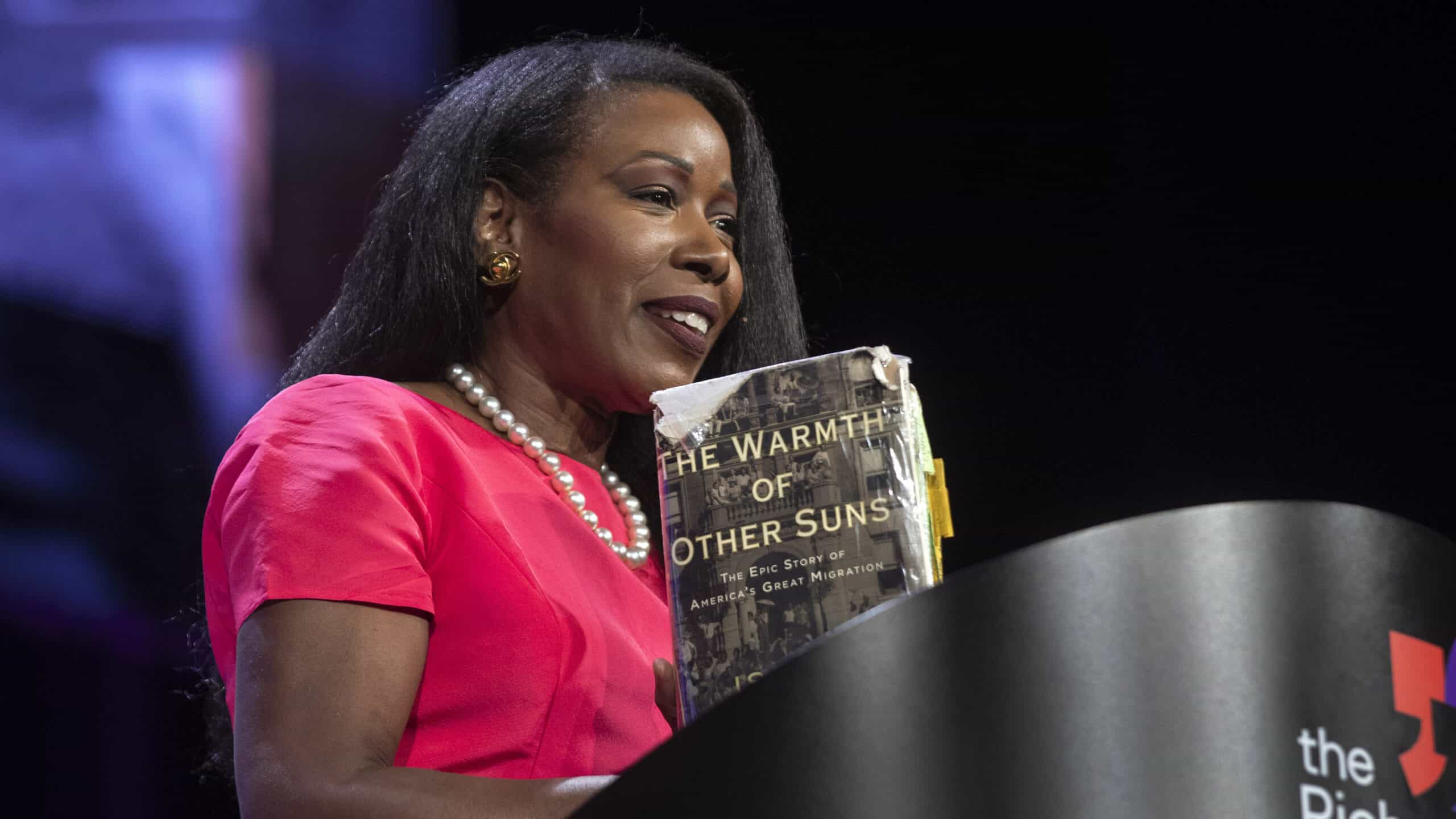
“The vast majority of African Americans who have ever lived and died in this country never had the chance to be what they might have become – never had the chance to be able to pursue the strengths and the talents that were within them.”
Isabel Wilkerson
The Epic Story of America’s Great Migration
PROGRAM DATE: November 18, 2023
The mass movement of six million African Americans from the rural South to the urban North between 1915 and 1970 was a defining force in American history. However, it is a chapter that often goes unacknowledged. Over the course of 15 years, author Isabel Wilkerson interviewed thousands of individuals across the country in order to bring the collective history and personal stories of this movement to light in her book “The Warmth of Other Suns.”
Wilkerson shared this history at The Richmond Forum on November 18, 2023, in “The Epic Story of America’s Great Migration.” As she sees it, most Americans have not had the opportunity to know their country’s true and full history, so she has made it her mission to use the powers of language and narrative to change how people see each other and the world.
“Black Americans were excluded from the American dream,” Wilkerson said to the Forum audience. She explained that in the early-to-mid 20th century, “African Americans had to act like immigrants in order to be recognized as citizens.”
Oppressive Jim Crow laws and threats of violence, paired with limited access to education and employment, caused Black Southerners to leave behind their homes and communities in order to seek a better life in other parts of the U.S. “Every single family had to at least consider the question, ‘Should we go or should we stay?’,” Wilkerson shared.
“It was the first time in our country’s history that the lowest caste people actually had the chance to choose for themselves what they would do with their God-given talents and where they would pursue them.” In this pursuit, those who participated in the Great Migration not only changed the course of their own lives but the lives of their descendants, as well.
“THIS WAS NOT ABOUT MOVING. THIS WAS NOT ABOUT GEOGRAPHY. MIGRATION IS ABOUT FREEDOM AND HOW FAR PEOPLE ARE WILLING TO GO TO ACHIEVE IT.”
– Isabel Wilkerson
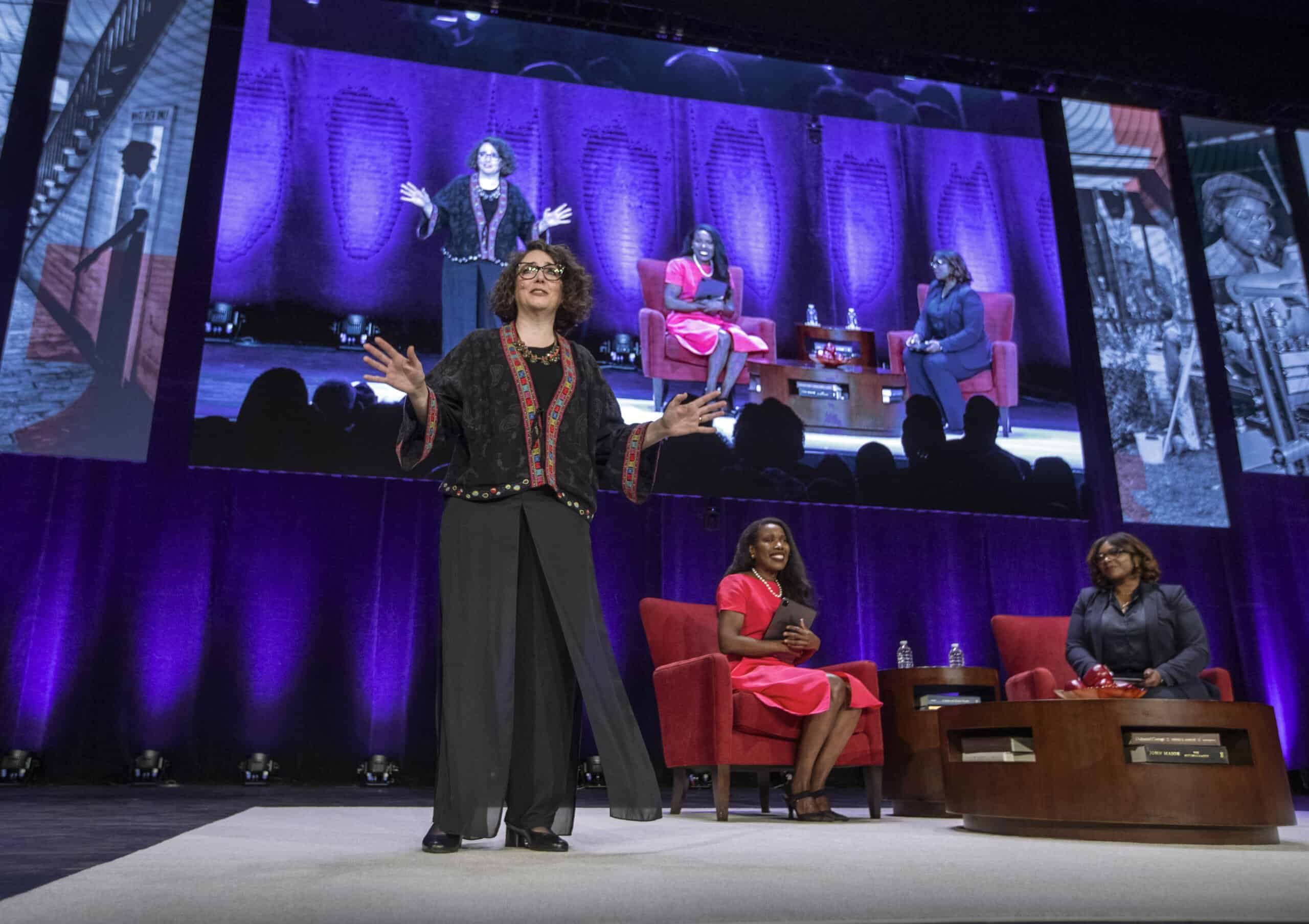
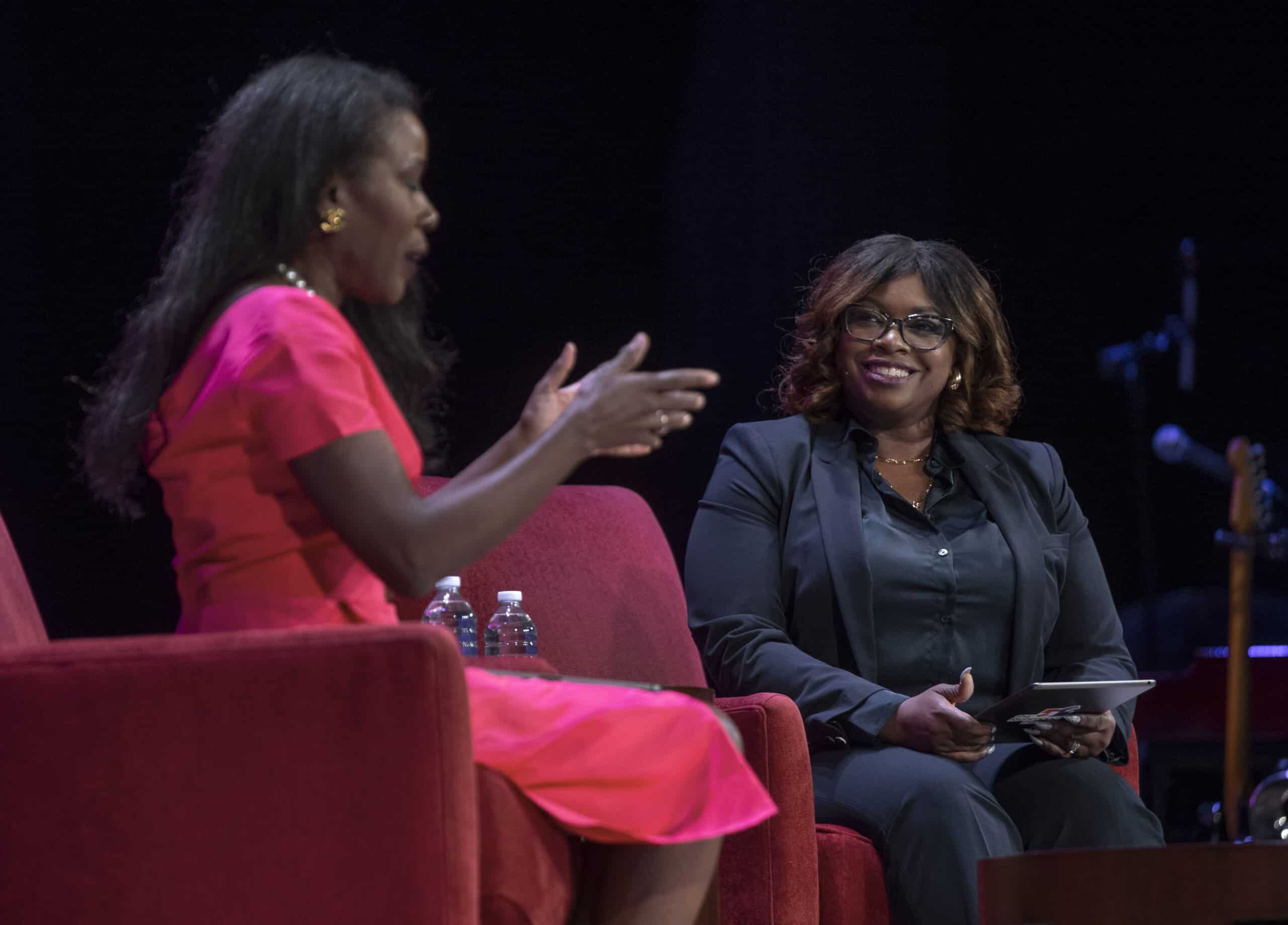
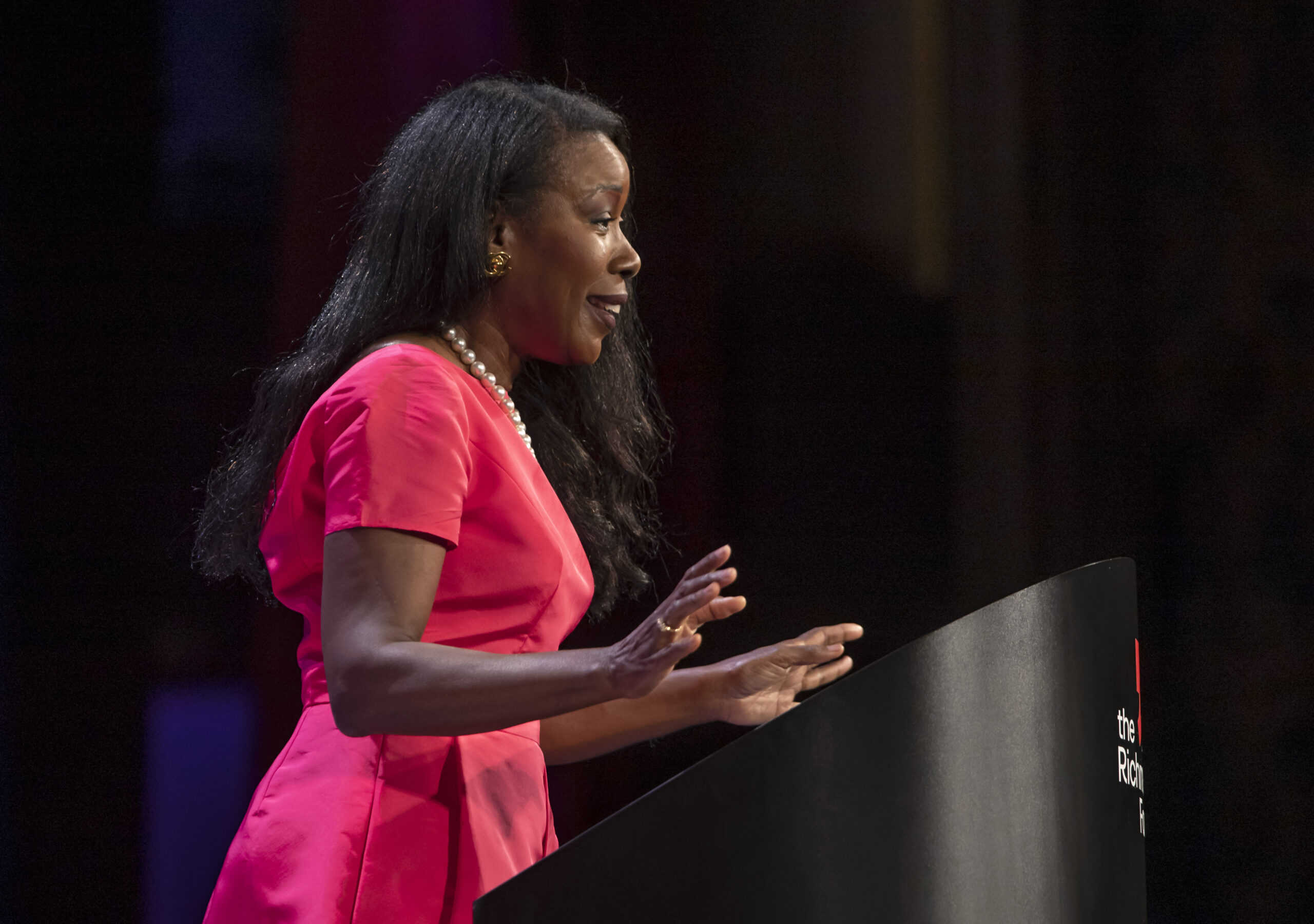
“In everything that I do, I think about my ancestors,” Wilkerson stated. “It was against the law for them to learn to read and write, and here I stand before you as a Pulitzer Prize winner.”
Wilkerson’s parents were both born in the South and moved to Washington, D.C. in their young adulthood. She mentioned notable public figures who were also “children of the Great Migration,” including writer Toni Morrison, Olympian Jesse Owens, actor Denzel Washington, and music producer Berry Gordy. If their parents had not made the decision to leave, Wilkerson believes these talented individuals might not have been awarded the same opportunities to pursue their passions and excel in their respective fields.
She emphasized that while there are notable figures in this chapter of history, the Great Migration was a leaderless movement. “That’s where the power of it comes from,” Wilkerson said. “There are leaders and heroes in every one of our families.”
She closed her speech by inviting the audience to think of the potentially unknown heroes in their own family lineage. “We are all the product of some form of migration,” she asserted. “I want you to imagine a young person at a dock about to board a ship that’s going to cross the Atlantic, or loading up a truck that’s going to cross the Rio Grande, or standing at a railroad platform about to cross from the rural countryside to the big city.”
“I’m convinced that the people in our backgrounds who made that heartbreaking sacrifice [to leave behind the people who raised them] did not make those decisions so that their descendants would be at war with one another,” Wilkerson continued. “I think they went with all the hope and dreams and faith that life might be better for both themselves and their descendants.”
Wilkerson shared more about her personal experience writing “Warmth” when the conversation was opened up to questions from the Forum audience. For this portion of the evening, Wilkerson was joined on stage by Shakia Gullette Warren, the executive director of the Black History Museum and Cultural Center of Virginia.
The audience also had a significant curiosity about modern demographic and geographic shifts in the U.S., noting that a large number of Black Northerners have been moving to Southern states in recent years. Wilkerson urged the audience not to think of this as a “reverse migration” as the shift does not signify backward momentum. Rather, she urged them to think of it as a “return migration.” When we see people relocating from the North to the South, “they are acting upon the rights and privileges that came as a result of the sacrifices of those who participated in the Great Migration and the Civil Rights Movement.”
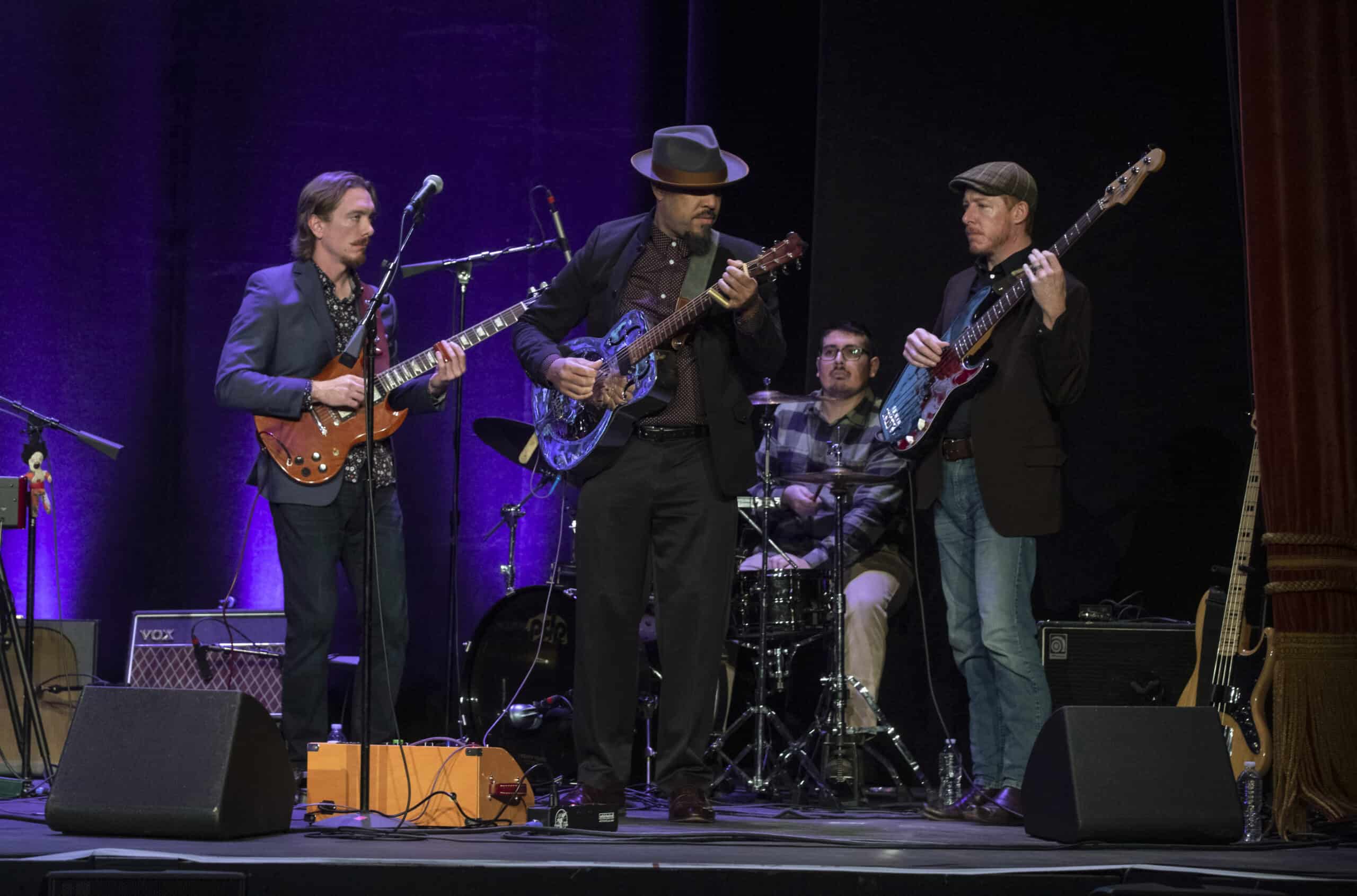
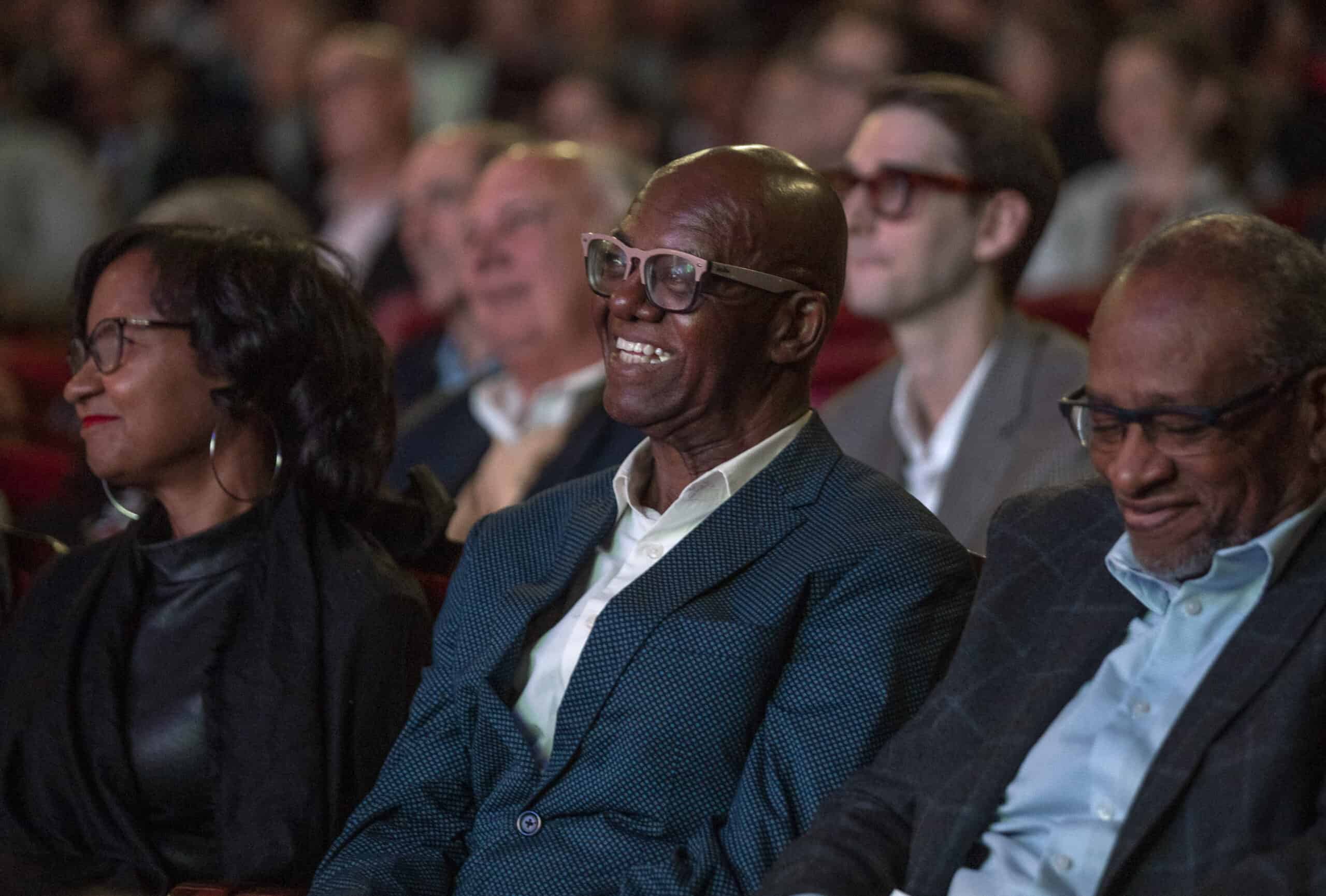
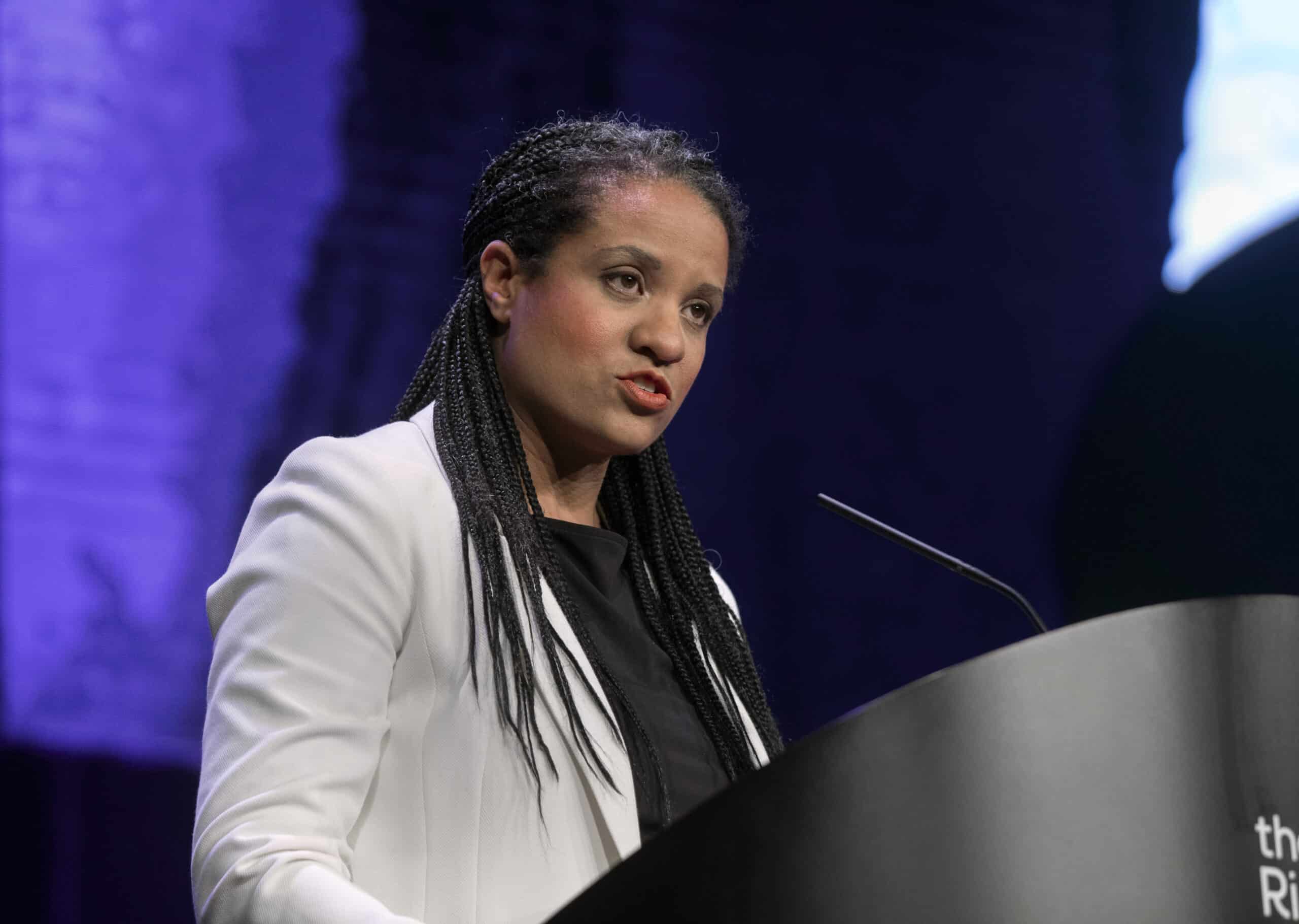
“Isabel Wilkerson’s empathy for our nation’s ancestors was profound. She allowed the audience to see what a brave and monumental risk they took as they put their faith in the unknown. This was one of the best Richmond Forum programs in recent memory. Thank you!”
– Subscriber Comment
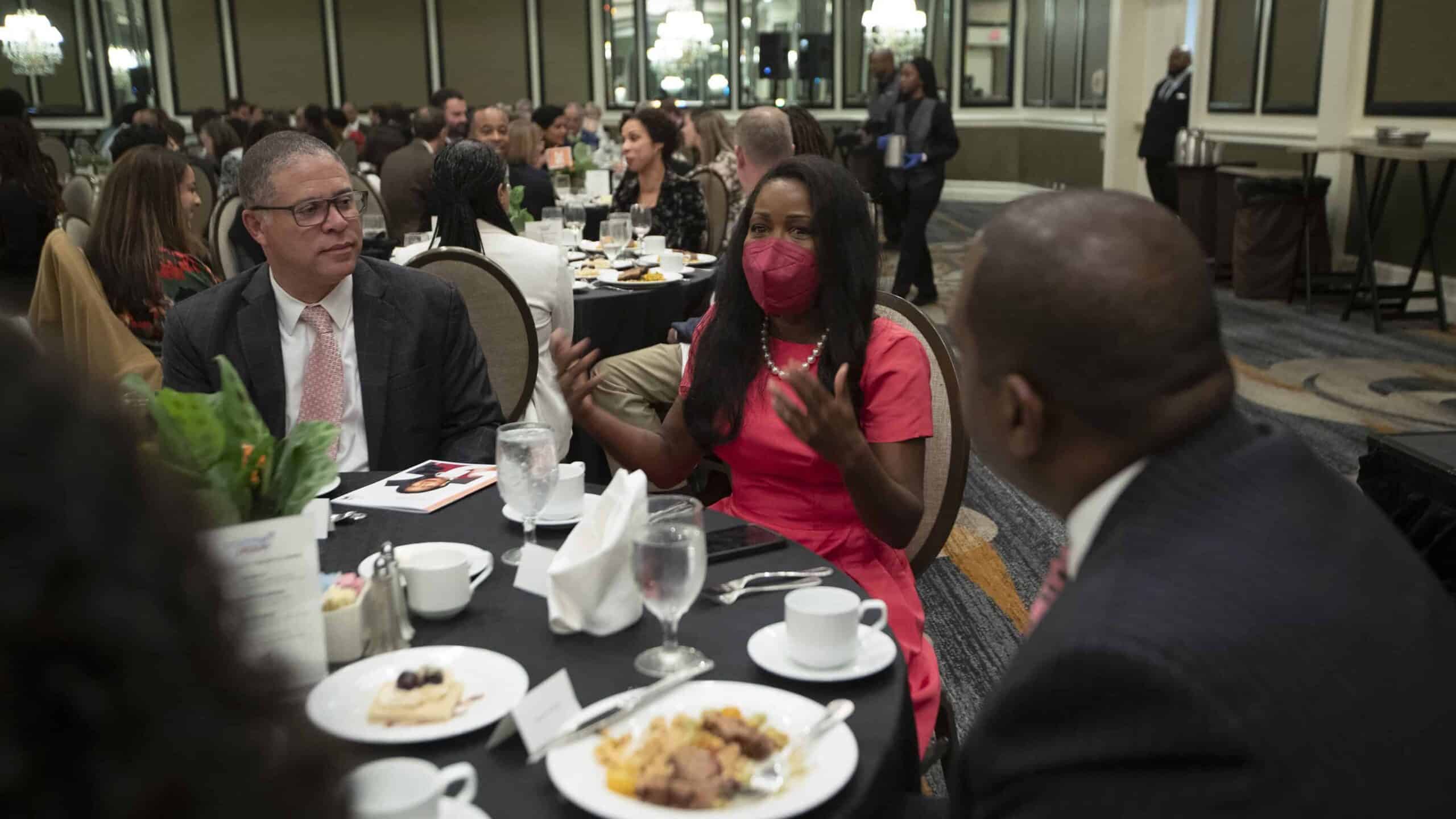
About Isabel Wilkerson
Isabel Wilkerson, winner of the Pulitzer Prize and the 2015 National Humanities Medal, is the author of The New York Times bestsellers “The Warmth of Other Suns: The Epic Story of America’s Great Migration” and “Caste: The Origins of Our Discontents.” She has become an impassioned voice for demonstrating how history can help us understand ourselves, our country, and our current era of upheaval.
Wilkerson spent 15 years working on “The Warmth of Other Suns,” interviewing more than 1,200 people to tell what she calls one of the greatest underreported stories of the 20th century. Released in 2010, the National Book Critics Circle Award-winning work made national news when President Barack Obama chose it for his 2011 summer reading list. The New York Times Magazine named “The Warmth of Other Suns” to its list of the best nonfiction books of all time, and TIME magazine named it one of the “10 Best Non-Fiction Books” of the 2010s.
In August 2020, Wilkerson published her latest book, “Caste: The Origins of Our Discontents,” to widespread critical acclaim. The New York Times named it a 2020 must-read book and labeled it “an instant American classic,” while Oprah Winfrey selected it for her monthly book club. “Caste” examines the unspoken caste system that has shaped America’s history and people, and reveals how a hierarchy of social divisions defines our lives to this day.
Wilkerson won the Pulitzer Prize in 1994 for her work as Chicago bureau chief of The New York Times, making her the first Black woman in the history of American journalism to win a Pulitzer and the first African American to win for individual reporting. She has lectured on narrative nonfiction at the Nieman Foundation at Harvard University and has taught at Princeton, Emory, and Boston universities.
Additional Resources
Watch Program Highlights
